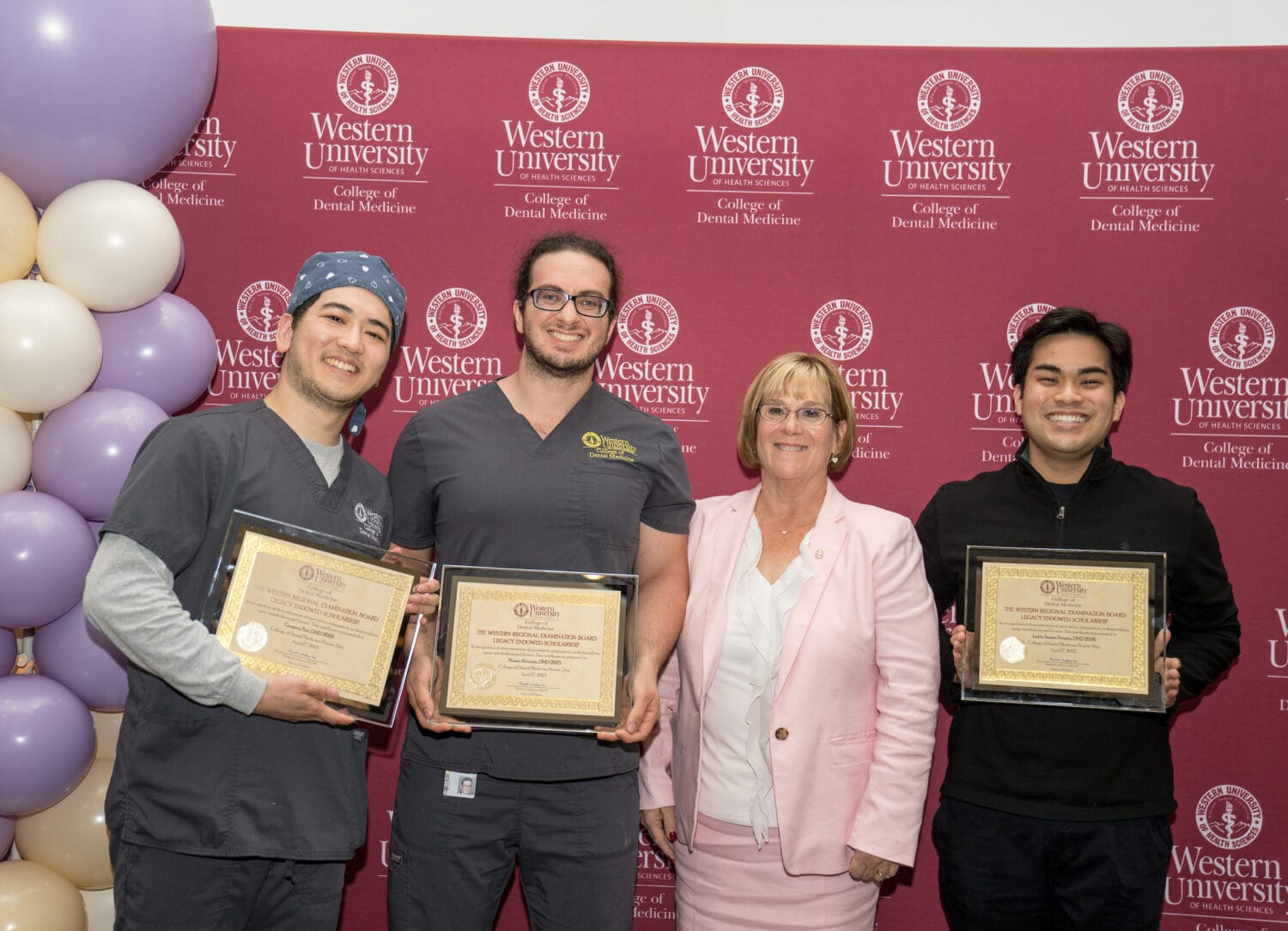WesternU Furthers Geriatric Education
Two Western University of Health Sciences programs have received federal funding to further geriatric training and education.
WesternU’s Interprofessional Education (IPE) program and the College of Pharmacy received approximately $150,000 in Health Resources and Services Administration (HRSA) funding as a subcontract from the California Geriatric Education Center at UCLA. The Department of Interprofessional Education will develop, evaluate and disseminate a team-based interprofessional training course. The College of Pharmacy will provide continuing education classes for geriatric pharmacists.
IPE is funded for five years to develop, pilot test, implement, evaluate and disseminate the results of geriatric-focused interprofessional activity. IPE is developing a team-based objective structured clinical exam, or OSCE, that assesses the behavior of a clinician.
“We are combining a team-based OSCE with formal teamwork training,” said WesternU Vice Provost Sheree Aston, OD, MA, PhD. “We teach students the principles of teamwork, then assess how well they do with standardized patients.”
The phrase “health care teamwork” usually conjures images of a hospital team, but the majority of health care is ambulatory care out in the community, Aston said.
For example: After a 70-year-old has a stroke and is released from the hospital, they are now in the community. Where do they go? They may work with a physical therapist, go to a pharmacy and hire a visiting nurse.
“Does this patient, post-stroke, get team-based care? Probably not. Most health care providers don’t know each other,” Aston said. “We think that’s the big missing link in health care. Older adults especially suffer a big communication gap in providers.”
Geriatric patients are the most in need because they often have multiple chronic conditions as well as multiple heath care providers, and they are at greater risk for potential medication errors, Aston said.
“This is completely in line with what we are doing,” Aston said. “In the end, a majority of our graduates will work with geriatrics. We think it’s really important it be team based.”
Less than 1 percent of pharmacists are certified in geriatrics, but 30 percent of all prescriptions are for people over 65, said Sam Shimomura, PharmD, College of Pharmacy Associate Dean for College Advancement. Geriatric patients are more prone to adverse drug reactions, and when they have a reaction, it’s more likely to be fatal, he said.
The College of Pharmacy is sponsoring an Intensive Course in Geriatric Pharmacy and Board Review Sept. 29-Oct. 2 in Marina Del Rey. The course is for pharmacists who want certification in geriatrics.
“We’re partnering with a prestigious organization like UCLA Geriatrics,” Shimomura said. “That’s a major coup. It’s important to work with other well known prestigious organizations.”



